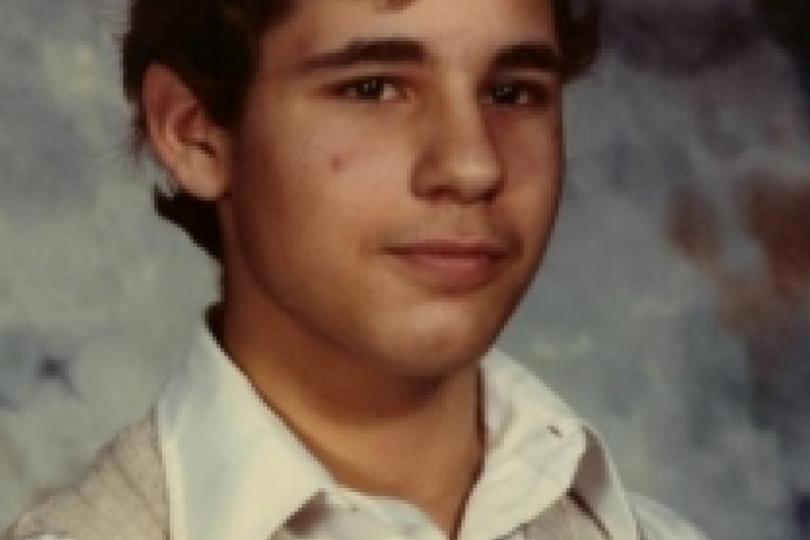The best live performance I saw this year was a night of stand-up comedy by Paul F. Tompkins at the Parkway Theater this past May.
I feel bad writing that my favorite piece of live theater from the past year was not performed by someone local or by a theater company but by a touring stand-up comedian. In the past 12 months I saw many excellent, funny, compelling, tragic, astounding live stage performances—and I saw only a tiny fraction of the countless productions Minnesota had to offer.
But the thing I most connected with mentally, emotionally, and physically was a guy alone on a stage talking into a microphone.
Watching stand-up comedy was the thing that got me interested in making my own work. It’s an art form I loved as a kid that I still love just as much today. For me, seeing a stand-up comedian at the top of their game is to see the highest level of live theater. And Paul F. Tompkins is one of the best stand-up comics working today.
Effortless
Watching Paul F. Tompkins do stand-up is like watching Patrick Stewart perform in Who’s Afraid of Virginia Woolf or seeing Penumbra produce an August Wilson play. You can feel how much hard work, how many years of development, and what phenomenal amount of skill and thought went into the performance, but you can’t see any of that on stage because the most amazing part about a great performer is that he tricks you into thinking what is happening on stage is completely spontaneous. The kicker this time was that, at the top of the show, Tompkins actually did 15 minutes of spontaneous comedy.
For at least the past few years Tompkins opens every set with about five minutes of extemporaneous riffing. He can tell a story full of jokes and make it feel like he’s just having a casual conversation with the audience, but the line is always clear between the prepared stand-up act and the top-of-show riffing. Tompkins will usually transition by saying something along the lines of, "So, should I get started with the actual show" or "All of that wasn’t even included in the price of your ticket."
Watching a stand-up comic improvise is exhilarating, much like those moments in the performance of a play when something goes wrong and the actors on stage have to figure out how to deal with it while keeping things on track. It reminds you how much inherent risk there is for anyone standing on a stage trying to communicate something to an audience. But it’s also a relief when the actors get back to the script or when the comic gets back to her fully polished material. For audience members, things going a little off track is exciting; things staying off track is stressful and disappointing.
However, at Tompkins’ May performance he improvised ten minutes about a technology issue we were watching him experience on stage before suggesting that it might be time to get on with his prepared act. There was an audible sigh of disappointment in the house. Tompkins, observing the audience’s reaction, explained that the preceding remarks had been a bonus but that he had actual jokes to share when someone in the audience actually shouted out “More bonus!” So he did five more minutes of brilliant improvised comedy before getting on with his 60 minutes of brilliant written comedy.
Joy
There’s more polish and punchlines in improvised comedy from Tompkins than in routines lesser comics have spent years working out. And he clearly feels as much joy not just in performing but also in his ability to just play with jokes and ideas in front of a sold-out crowd.
I don’t know if there’s anything more enjoyable to watch than someone who is amazing at something and who knows they are amazing at it do that thing. It’s the thing I find most compelling about the Olympics. It’s why I actually like going to my highly skilled dentist. And it’s a key ingredient in all the live stage performances I’ve most enjoyed.
I loved, loved, loved Pillsbury House Theatre’s production of Buzzer this past February. The script was fantastic and the set added context while largely staying out of the way. But what made that show work for me was the three actors, Hugh Kennedy, Namir Smallwood, and Sara Richardson, who so clearly knew they were at the top of their game. They had spent years developing their skills so that the performance could become a playground for not just recreating discovery made in rehearsal but actually finding small moments of discovery in front of the audience.
At Mu Performing Arts’ 2012 Minnesota Fringe Festival show Taiko Flash what made me well up with excitement and emotion wasn’t the deep cultural history or the heart pounding drumming, although those elements were very powerful. What moved me the way only live performance can is the message I read on the faces and bodies of every performer involved: with every movement they were clearly telling the audience to relax and just absorb the show because, We got this.
I've heard that if, after a show, a performer asks an audience member what they thought and the response is “You sure seemed to be having a lot of fun up there,” then they're indicating that their opinion of the show was negative. I’m sure there are times when that’s true. But I also hope the performers were having a lot of fun up there, even if the show itself was lousy. I want to walk away from a show thinking that the performers had a ton of fun making and performing the show.
I seriously hope that when someone sees me performing on a stage, they can see and feel how much joy I get from the doing of it.
Making live theater is about telling stories, asking questions, comforting the disturbed and disturbing the comfortable, but it should also be about having fun. Almost no one is going to make a bunch of money or gain a lot of power by making theater. The vast majority of theater artists aren’t even going to make their living doing it. As a means of personal therapy it can be effective but highly inefficient.
So it had better be fun at least some of the time. And, goddamn, if you can be like Paul F. Tompkins and let the audience see how much fun you’re having sharing your amazing skill with them, then I think you’re doing your job.
Levi Weinhagen
Levi Weinhagen is a comedy writer and theater maker. He is co-founder of the all-ages theater company
Comedy Suitcase.
Levi is producer and host of
Pratfalls of Parenting, a podcast featuring conversations with artists about the relationship between being an artist and being a parent.





